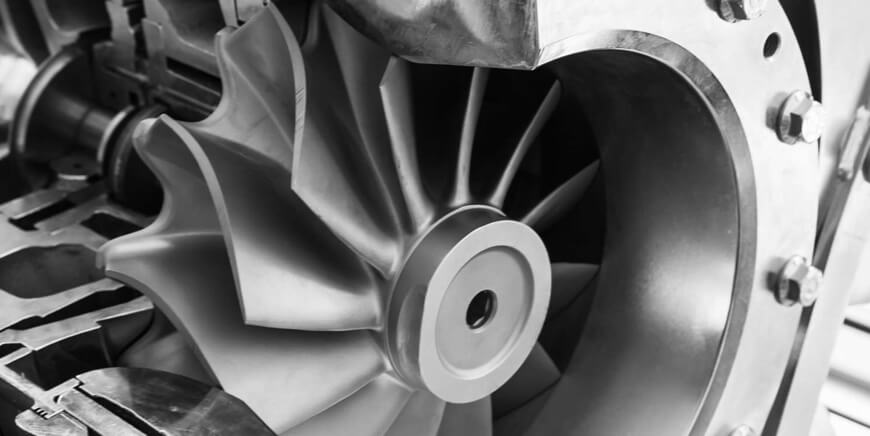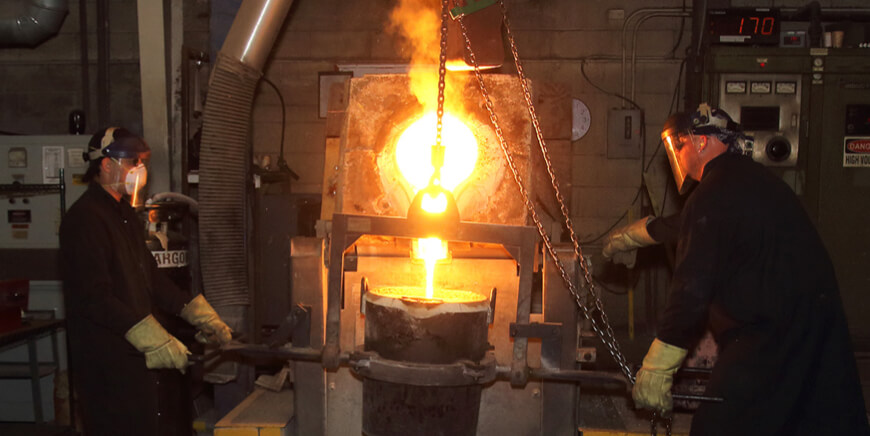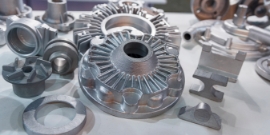Call Us: 440-946-5300
BLOG
Why Aerospace Manufacturing Certifications & Standards Matter: A Comprehensive Overview
The stakes are exceptionally high in aerospace manufacturing. Every component produced must meet stringent standards of quality, safety and reliability to ensure it performs flawlessly. At the core of this assurance are crucial certifications and standards that govern the industry. Among aerospace manufacturing certifications, AS9000, AS9100 and NADCAP stand out as significant benchmarks that manufacturers strive to attain.
Together, these aerospace quality standards embody a commitment to excellence, highlighting a manufacturer's dedication to adhering to the highest standards. They act as a reassuring badge of honor to customers, signifying that their suppliers have top-notch processes in place.
This article will explore the primary aerospace manufacturing certifications and detail Bescast's commitment to aerospace quality standards.

The Origins of AS9000 and NADCAP
Aerospace manufacturing quality standards arose in the 1990s from an industry-wide desire to establish standardized protocols.
AS9000
AS9000 emerged from the coordinated efforts of a coalition of aerospace prime contractors in 1997. Under the guidance of the Society of Automotive Engineers (SAE) in North and South America, AS9000 was developed to streamline aerospace quality standards. This initiative was rooted in the need to better organize and harmonize the quality measures adhered to by various aerospace players.
AS9000 laid the groundwork for what would later evolve into the AS9100 certification. Introduced in 1999, AS9100 was a collaborative venture between the SAE and the European Association of Aerospace Industries. This certification replaced the earlier AS9000, encapsulating all the elements of the ISO 9001 standard while incorporating additional requirements related to quality and safety in the aerospace industry.
NADCAP
The formation of NADCAP (National Aerospace and Defense Contractors Accreditation Program) in 1990 was a response to the growing call for a unified accreditation program that could uphold and validate the quality of processes, products and services within aerospace-related industries. NADCAP was not just about standardization, but it also embodied a collaborative endeavor where prime contractors coordinated with accredited suppliers to craft industry-wide audit criteria for special processes and products.
AS9000: The Original Aerospace Quality Management System
AS9000 aerospace manufacturing certifications sought to instill a culture of customer satisfaction by ensuring that aerospace products were designed and manufactured according to a standard quality management system and produced at the lowest possible cost. This delicate balancing act between quality and cost was instrumental in honing the competitive edge of aerospace firms adhering to the AS9000 standard.
AS9000 certification outlined the quality system requisites, blending the foundational elements of the ISO 9001 standard with 27 additional requirements exclusive to aerospace. This helped iron out the disparities in quality protocols among different aerospace players, thus streamlining the industry's approach to quality management. By doing so, AS9000 played a pivotal role in setting a common quality language that aerospace companies could adhere to, ensuring that the products rolling off their assembly lines were manufactured using a well-defined quality management system.
Bescast has been AS9000 certified since 1999. Our long-standing commitment to investment casting quality standards underlies our AS9000 certification, ensuring a quality management system that meets our customers' needs.
AS9100: The Next Generation of Aerospace QMS
AS9100 Rev D is chief among the aerospace manufacturing certifications. It was designed to help the industry implement a robust aerospace quality management system. It's more than just a certificate; it's a pledge of quality and reliability. This standard seamlessly aligns with ISO 9001:2015, extending that standard's quality principles to meet the distinctive demands of aerospace manufacturing. As a result, a company certified to AS9100 is also ISO certified.
The aerospace sector is synonymous with high-risk and stringent regulations, and AS9100 is a crucial badge of compliance and excellence. By adhering to the AS9100 standard, aerospace manufacturers commit to consistently employing a proven quality management system.
For customers, the benefits of engaging with suppliers who uphold this aerospace certification are substantial. It's a seal of assurance that the supplier produces components with customer satisfaction in mind and complies with rigorous aerospace quality standards. This certification reflects a supplier's unwavering commitment to quality management, showcasing a proactive approach to adhering to industry-leading standards. Moreover, it fosters a culture of continuous improvement, as AS9100 certification requires periodic audits and reviews to ensure sustained adherence to quality management. When customers choose to work with AS9100-certified suppliers, they are choosing a pathway of trust and reliability.
Bescast's AS9100 certification lays the groundwork for all our customer relationships. It demonstrates our ongoing commitment to a quality management system that delivers the highest level of customer satisfaction.
NADCAP: Unbiased Validation
NADCAP digs deeper than other aerospace standards, offering a specialized focus tailored for space, aviation and defense organizations. It's not just about adhering to a set of predefined standards; it's about rising to the unique challenges and stringent requirements inherent in these fields.

NADCAP requirements are indispensable in raising the bar of quality, precision and assurance in aerospace manufacturing. It's not a one-size-fits-all approach; NADCAP certification involves a rigorous audit process that scrutinizes every aspect of a supplier's operations, ensuring they meet the industry-wide audit criteria crafted for special functions. Through this thorough vetting, NADCAP processes reinforce a culture of precision and quality assurance that resonates through every layer of aerospace manufacturing.
For customers, the reasons to work with NADCAP-accredited suppliers are compelling. The rigorous audits and stringent criteria needed to attain NADCAP certification reflect a supplier's unwavering commitment to quality, precision and safety. This, in turn, translates to superior quality products, fostering a strong sense of trust and satisfaction among customers. The independent certification provided by NADCAP also offers an unbiased validation of a supplier's capabilities.
Bescast holds NADCAP certifications for our in-house heat treatment, penetrant inspection, radiographic inspection and welding processes. This demonstrates our exceptional level of precision and quality and underscores our capability to meet and exceed the exacting requirements of the aerospace and defense sectors.
Bescast: Your Partner in Aerospace Manufacturing Excellence
Our AS9000, AS9100 and NADCAP certifications testify to our unwavering commitment to quality management and excellence, providing a distinct customer advantage. By earning these certifications, Bescast has demonstrated an exceptional level of precision and quality assurance. We're well-versed in the current demands of aerospace manufacturing and poised to innovate and lead in this highly competitive and regulated industry.
Aerospace Manufacturing Certifications
As a prominent aerospace component supplier, Bescast is well-suited to answer your questions about aerospace manufacturing certifications. Read the following for additional information.
What Are the Benefits of AS 91XX Compliance?
AS 91XX compliance improves a supplier's efficiency and cost-effectiveness. By adhering to an aerospace-specific quality management system, the company also delivers a higher level of satisfaction for its customers.
What Is the Difference Between AS9100 and ISO 9001?
ISO 9001 applies to a broad array of industries, while AS9100 is specific to the aerospace sector. Besides their focus, there's little difference between the two since AS9100 incorporates all of ISO 9001's standards.
How Long Does It Take to Get AS9100 Certified?
Although the timeline varies based on each company's circumstances, it takes at least four months from planning through the audit to get AS9100 certified.
Trust Your Aerospace
Component Needs to Bescast
Now that we've discussed aerospace manufacturing certifications, you're ready for the next step. Bescast adheres to the highest aerospace quality standards and also holds ISO 9002 certification. Our investment casting quality is second to none. You can rely on our aerospace casting expertise for the high-quality components your application demands. Contact us today to see what Bescast can do for you.
Related Articles

CATEGORY
RECENT POSTS








